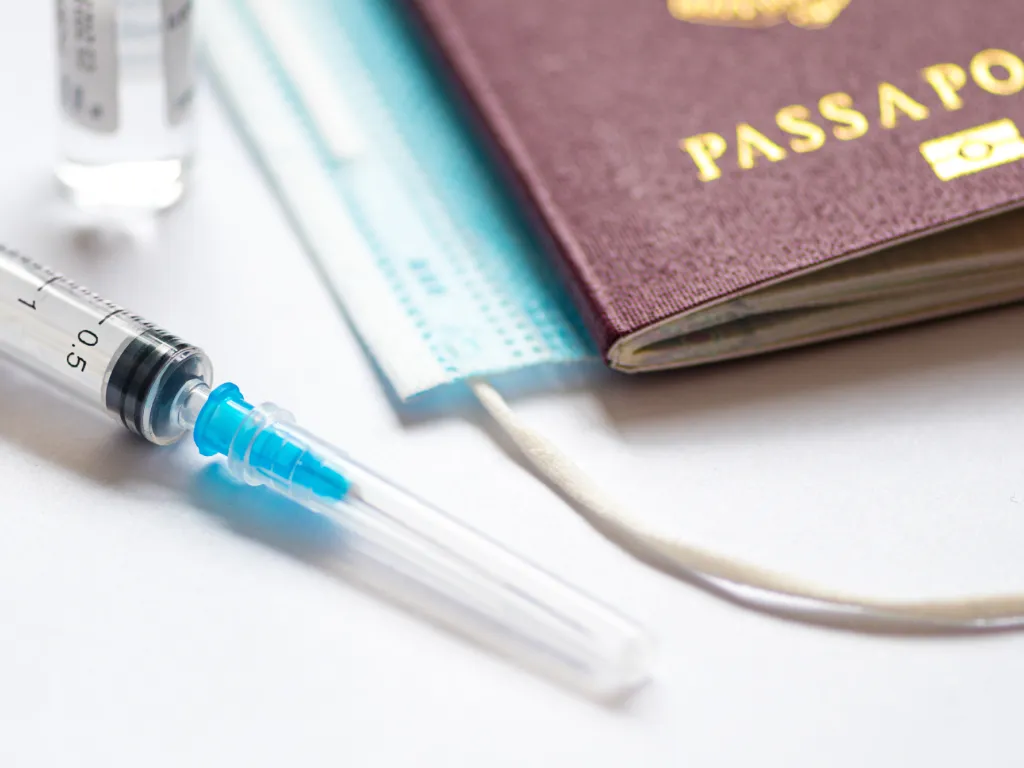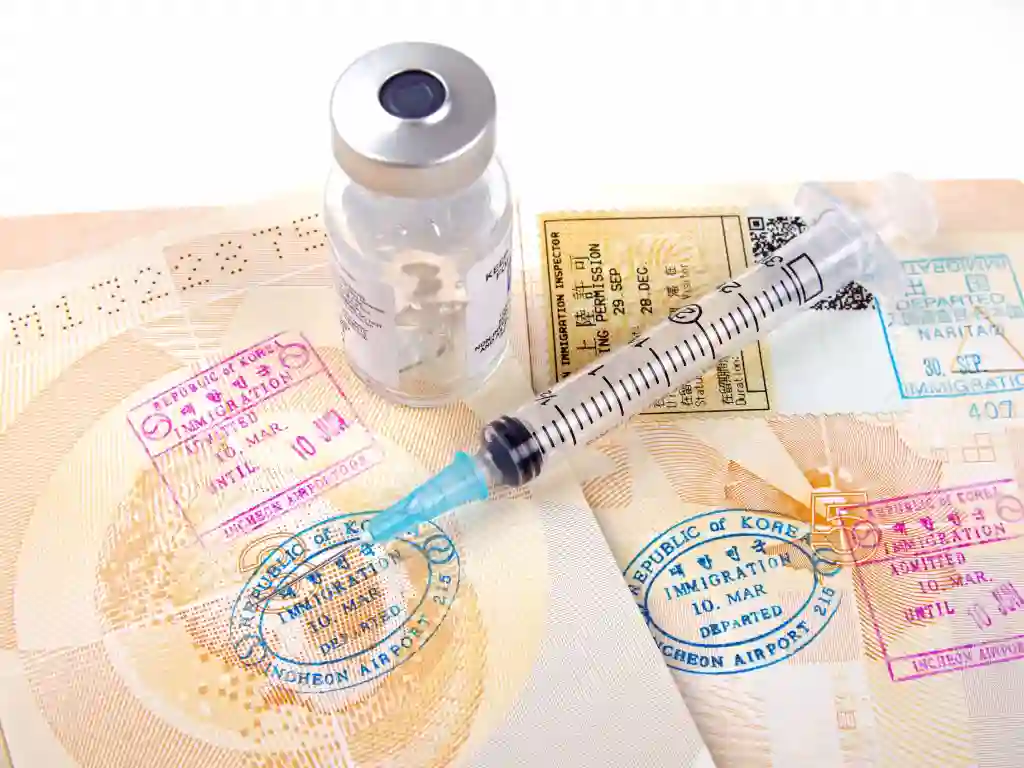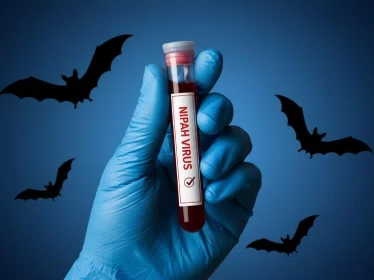
Every trip comes with unique health considerations shaped by your destination, season, trip length, and activities. Planning ahead gives your vaccines time to take effect and ensures your certificates are valid before departure.
Common travel vaccines include:
- Influenza
- Hepatitis A & B
- Meningococcal
- Tdap (Tetanus, Diphtheria, Pertussis) Booster
- Typhoid fever
- Varicella
- MMR (Measles, Mumps, Rubella)
If you are arranging a travel vaccination appointment in Singapore, this guide explains when to get your travel vaccines, and what to prepare for your appointment.
Travel Vaccination Planning Essentials
When should I get vaccinated before travelling?
If you are wondering when to get travel vaccines, the safest approach is to book your consultation four to six weeks before departure. This timeframe gives your body time to build protection and allows multi-dose courses to be completed. Even if your trip is soon, your doctor may still recommend an accelerated schedule for certain vaccines.
Keep in mind that some certificates only become valid after a set number of days. For example, a yellow fever certificate becomes valid ten days after vaccination. Planning ahead prevents problems at immigration or border checkpoints.
Why travel vaccinations matter for Singapore travellers.
Travelling abroad can expose you to new health risks, and many destinations require vaccination certificates as part of their entry rules. The right vaccinations reduce the chance of serious illness, help you meet border requirements, and protect family and community when you return.
Risks vary by destination and travel style. Some events such as Hajj or Umrah require specific vaccines. Trips to parts of Africa may require a yellow fever vaccination certificate. A consultation with your doctor ensures your routine immunisations are current, your travel vaccines are tailored to your journey, and all certificates are valid for every stop.
Do I need to update routine vaccines before travel?
Yes. Staying current with routine vaccines before travel lowers the risk of illness during and after the trip. For Singapore citizens, your doctor will review your immunisation records and advise on updates based on your age, health, and planned activities. Maintaining this basic protection also reduces the need for additional travel specific vaccines.
Do my destination and trip type change my risks?
Where you go and how you travel shape your vaccine plan. Share your route, stopovers, and activities with your doctor so recommendations reflect your full travel.
- Rural stays and outdoor activities: Higher exposure to mosquitoes and animals may change vaccine and medication advice.
- Mass gatherings and pilgrimages: Close contact increases specific risks, and some events require proof of vaccination.
- Cruises and multi-country itineraries: Different stops can have different rules, so share your full route for accurate advice.
- Region-specific travel: For example, vaccines for Southeast Asia travel differ from those for Africa, where yellow fever and malaria prevention are priorities .
Common travel vaccination mistakes to avoid
- Booking too close to departure leaves little time for protection. Aim for at least four weeks.
- Some vaccines require several doses over weeks or months. Plan vaccination early.
- Some destinations require proof of vaccination. Confirm your documents before travelling.
- Multi-country itineraries may have different rules. Share your full route, including transits, so your doctor can give precise advice.
Which vaccinations are common for Singapore travellers?
Your vaccination needs depend on your destination, travel dates, and personal health profile. Some countries also require proof of specific vaccines before entry. For Singapore travellers, common vaccine considerations include influenza, hepatitis A, hepatitis B, typhoid, a Tdap booster, meningococcal (for Hajj or Umrah), and yellow fever for selected regions.
Since requirements can change, your doctor will review your full itinerary, including transit stops, to confirm the latest rules. In the next section, you’ll find a vaccine-by-vaccine guide to help identify which ones may apply to your journey.
Which Travel Vaccines Do You Need?
Recommendations vary by destination, season, trip type, and your health profile. Your doctor in Singapore will advise which travel vaccines you need based on your full itinerary.
| Vaccine | Required or recommended | Who needs it | When to get it | Certificate validity | Protection length |
|---|---|---|---|---|---|
| Influenza | Recommended | Most travellers, especially older adults, people with chronic conditions, and those travelling during flu season | At least 2 weeks before departure | Not applicable | 1 flu season; yearly vaccination advised |
| Hepatitis A | Recommended | Travellers to areas with poor food and water hygiene, people with chronic liver disease, and other at-risk groups | At least 2 weeks before departure | Not applicable | Long-lasting after full 2-dose course |
| Hepatitis B | Recommended | Healthcare workers, long-term travellers, those who may need medical care abroad, and travellers to high-prevalence areas | Start at least 6 months before departure to complete full series (accelerated schedules possible) | Not applicable | Decades to lifelong after full 3-dose course |
| Meningococcal (MenACWY) | Required for Hajj/Umrah | All Hajj/Umrah pilgrims; sometimes recommended for students in dormitories or travellers in long-term close-contact housing | At least 2–3 weeks before departure (certificate valid 3–5 years) | 3–5 years depending on vaccine type | Around 5 years for conjugate vaccine |
| Tdap (Tetanus, Diphtheria, Pertussis) | Recommended | All adults; a one-time Tdap if not received before, then booster every 10 years | If last booster was ≥10 years ago, get before departure | Not applicable | About 10 years |
| Typhoid Fever | Recommended | Travellers to destinations with higher typhoid risk, especially where food and water hygiene may be uncertain | At least 2 weeks before departure | Not applicable | 2–3 years; booster every 3 years if risk persists |
| Varicella (Chickenpox) | Recommended | Adults without immunity (no 2 documented doses, no past infection, or negative blood test); especially those visiting relatives, working with children, or travelling in groups | Two doses, 4–8 weeks apart. Begin at least 4 weeks before departure if possible | Not applicable | Long-lasting after 2 doses; no routine booster for healthy adults |
| MMR (Measles, Mumps, Rubella) | Recommended | Adults with unknown or incomplete 2-dose series, students overseas, and healthcare workers | At least 2–4 weeks before departure | Not applicable | Generally lifelong after 2 doses |

Influenza
What is the flu vaccine?
The influenza vaccine protects travellers against seasonal flu.
Why do travellers need the flu vaccine?
Airports, flights, and crowded public transport increase flu exposure, especially in winter destinations. A flu vaccine before travel lowers your chance of falling ill and reduces the risk of passing infection to others.
Where is it recommended or required?
Recommended for most travellers, particularly older adults, people with chronic health conditions, and anyone heading abroad during peak flu season.
When should I get the flu vaccine before my trip?
Take the travel flu shot in Singapore at least two weeks before departure, allowing time for protection to develop.
How long does protection last?
Immunity generally covers one flu season. For adults, one dose is recommended each year. For children aged 2–8 years receiving the flu vaccine for the first time, two doses spaced four weeks apart are advised.
Special notes
For Singapore pilgrims travelling for Hajj or Umrah, influenza vaccination is often encouraged alongside the mandatory meningococcal vaccine. While not a visa requirement, proof may be requested by some group organisers.
Hepatitis A & B
Both Hepatitis A and B are included in the National Adult Immunisation Schedule (NAIS), which recommends these vaccines for adults at higher risk of infection, including travellers
What are the Hepatitis A and B vaccines?
The hepatitis A vaccine protects against infection from contaminated food and water, while the hepatitis B vaccine guards against infection spread through blood and bodily fluids.
Who should get Hepatitis A or B before travel?
Hepatitis A is one of the most common vaccine-preventable infections for travellers, especially in areas with poor food and water hygiene.
Hepatitis B is advised for higher-risk groups such as healthcare workers, long-term travellers, or those who may need medical care abroad. It is recommended for travellers at risk of exposure, such as those visiting areas with higher Hep B prevalence.
In Singapore, Hepatitis B is part of the National Childhood Immunisation Schedule (NCIS), so most Singaporeans are vaccinated from birth, though catch-up is advised if doses were missed.
Where it may be required or recommended?
Hep A vaccination is recommended for trips to Asia, Africa, the Middle East, and South America. Hep B vaccination is not required for entry into any country but is recommended in Singapore for travellers at risk of exposure.
How long does protection last?
Hepatitis A usually provides long-lasting immunity after a full course. Hepatitis B protection can last for decades once the series is complete.
Special notes
Bring your vaccination records to the consultation. No official certificates are issued, but some employers or schools may request proof. Even with vaccination, safe food and water practices remain essential.
Meningococcal
What is the meningococcal vaccine?
The meningococcal vaccine protects against meningitis, a serious bacterial infection. In Singapore, it is commonly given to travellers preparing for Hajj and Umrah, where vaccination is a visa requirement.
Why do travellers need the meningococcal vaccine?
Large gatherings such as Hajj and Umrah increase the risk of meningitis spreading. To reduce this risk, Saudi authorities require all pilgrims to be vaccinated before travel.
Where is it recommended or required?
The vaccine is mandatory for all Hajj and Umrah pilgrims including those leaving from Singapore. Proof of vaccination, often called the meningococcal certificate, must be shown when applying for a visa and again on arrival. It may also be recommended for students living in dormitories or travellers spending long periods in close-contact housing overseas.
When should I get the meningococcal vaccine before my trip?
Travellers from Singapore should book their vaccination at least two to three weeks before departure to meet visa timing. This also ensures time for protection to develop. Some airlines and countries require the certificate to be issued within the past three to five years.
How long does protection last?
Protection from the quadrivalent meningococcal conjugate vaccine (MenACWY), which is the vaccine used in Singapore, usually lasts for about 5 years. In Singapore, most travellers receive the conjugate vaccine, which is valid for 5 years.
Your doctor can confirm whether your certificate is still valid and if a booster is needed before your trip.
Special notes
Book your vaccination early (at least 10 days before arrival) to avoid delays in visa processing. A valid meningococcal certificate is required for all Hajj and Umrah pilgrims leaving Singapore. Certificates are generally valid for three to five years depending on the vaccine given.
Tdap (Tetanus, Diphtheria, Pertussis) Booster
What is the Tdap booster?
The Tdap vaccine protects against tetanus, diphtheria, and pertussis. In Singapore, most adults receive it as a booster if their last tetanus-containing vaccine was more than ten years ago.
Why do travellers need this booster?
Travellers abroad may face cuts, scrapes, or medical procedures that raise the risk of tetanus. Pertussis protection is also important for those in close contact with infants or vulnerable groups while overseas.
Who should get a booster before travelling?
The Tdap booster is not required for entry into any country. Adults who have not received Tdap should receive a one-time dose, followed by a ten-year booster schedule.
In Singapore, it is part of the National Adult Immunisation Schedule (NAIS), which recommends:
- A one-time Tdap dose in adulthood (if not previously received), and
- A tetanus/diphtheria (Td) or Tdap booster every 10 years thereafter.
Tdap is included in the National Childhood Immunisation Schedule (NCIS), so most Singaporeans would already have received it in childhood. If you are travelling from Singapore, your doctor can review your records and confirm whether an adult Tdap booster is due before your trip.
How long does protection last?
Usually about ten years. If it has been longer since your last dose, a booster is recommended before departure.
Special notes
Pregnant women are often advised to take the Tdap vaccine during prenatal care. Always bring past vaccination records so your doctor can give precise guidance. No certificates are issued, but keeping records updated prevents unnecessary repeat doses.
Yellow Fever
What is the yellow fever vaccine?
The yellow fever vaccine protects against a mosquito-borne viral illness found in parts of Africa and South America. In Singapore, it is provided only at designated yellow fever vaccination centres, which also issue the official International Certificate of Vaccination (yellow card).
Why do travellers need this vaccine?
Some destinations carry a risk of yellow fever transmission. Vaccination protects you from illness and prevents the spread of the disease across borders.
Where is the yellow fever vaccine required?
The vaccine is recommended for anyone travelling to or transiting through areas where yellow fever is present. It is mandatory for entry into many African and South American countries, and some other destinations require proof if you are arriving from a risk region. Travellers from Singapore must show a valid yellow fever vaccine certificate to meet these entry requirements, and airlines may also check it before boarding.
When should I get the yellow fever vaccine before my trip?
Book your appointment at least 10 days before departure. The certificate becomes valid only after this period. Travellers from Singapore must receive the vaccine at a designated yellow fever vaccination centre to obtain the official certificate.
How long does protection last?
A single dose usually provides lifelong protection. However, some countries still apply booster requirements, so confirm the rules for your destination before you travel.
Special notes
Do I need a yellow fever certificate if I only transited a risk country?
Yes. Many countries require a valid certificate even if you only passed through a yellow fever risk country during transit. Always carry your yellow fever certificate with your passport, as immigration officers may request it even if you only transit through a risk country.
How long is a yellow fever certificate valid?
A yellow fever vaccination certificate is valid for life (previously 10 years but updated by WHO in 2016).
Where can I get a yellow fever vaccine and certificate in Singapore?
Yellow fever vaccination is available only at Ministry of Health (MOH) authorised centres that can issue the International Certificate of Vaccination. Healthway Medical clinics are licensed by the Ministry of Health Singapore to provide the vaccine.
If you cannot be vaccinated for medical reasons, your doctor in Singapore can issue an exemption letter, though not all destinations accept it.
Typhoid Fever
What is the typhoid vaccine?
The typhoid vaccine protects against typhoid fever, a bacterial infection spread through unsafe food and water. In Singapore, it is commonly given to travellers visiting regions where the disease is still present.
Learn more about the typhoid vaccine here.
Why do travellers need this vaccine?
Risk is higher when eating street food, staying in rural areas, or visiting friends and relatives in countries with poor sanitation. Even short trips can result in infection if hygiene standards are uncertain.
Where is it recommended?
The typhoid vaccine is recommended for travellers from Singapore going to South Asia, parts of Southeast Asia, Africa, and Latin America. It is not a visa requirement but is strongly advised for higher-risk destinations.
When should I get the typhoid vaccine before a trip?
Doctors in Singapore recommend vaccination at least two weeks before departure. If your trip is imminent, an accelerated schedule may still be possible.
How long does protection last?
In Singapore, the injectable typhoid vaccine typically provides protection for about 2 to 3 years. A booster is recommended every 3 years if you continue to travel to or live in high-risk areas.
Special notes
No international certificate is required for typhoid vaccination. Some countries experiencing outbreaks may ask for proof. For Singapore travellers, carrying a vaccination record can be helpful at border points.
With your vaccine options in mind, it’s important to schedule your travel vaccination appointment in Singapore well ahead of departure. The following section guides you through what happens during a clinic visit, the documents you’ll need, and how to prepare for your consultation.
Varicella
What is the varicella vaccine
The varicella vaccine is a live, weakened vaccine that protects against chickenpox, caused by the varicella zoster virus. It is given by injection and trains your body to build lasting immunity, lowering the risk of illness and complications.
Why do travellers need the varicella vaccine
Chickenpox tends to be more severe in adults and spreads quickly in close settings such as tours, cruises, and family gatherings. Vaccination reduces the chance of falling ill during your trip and prevents bringing the virus home to others.
Who should get varicella before travelling
Adults who are not immune. This includes anyone without two documented doses, no confirmed past infection, or a negative blood test for immunity. It is particularly important if you will visit friends and relatives, work with children, or travel in groups.
When should I get the varicella vaccine before a trip
Travellers need two doses. Take the first dose as soon as travel is confirmed, followed by the second four to eight weeks later. Ideally, begin at least four weeks before departure to complete both doses. If leaving sooner, take the first dose immediately and schedule the second four to eight weeks after the first.
How long does protection last
Protection is long-lasting after the full two-dose course, and no routine booster is needed for healthy adults.
Special notes
Do not take varicella vaccine during pregnancy. People with weakened immunity or certain medical conditions should seek medical advice first. It is not a travel entry requirement, and no vaccination certificate is issued.
MMR (Measles, Mumps, Rubella)
What is the MMR vaccine?
The MMR vaccine protects against measles, mumps, and rubella, three highly contagious viral illnesses. Measles outbreaks continue to occur worldwide, making vaccination important for travellers.
Why do travellers need the MMR vaccine?
Travellers can be exposed to measles in airports, crowded venues, and on public transport. Many countries with lower vaccination coverage experience outbreaks, and proof of MMR is sometimes required for study or work abroad.
Who should get MMR before travelling?
Adults who are unsure of their vaccination status or have not completed the two-dose series. It is also recommended for students going overseas and healthcare workers.
In Singapore, MMR is included in the National Childhood Immunisation Schedule (NCIS), with two doses given at 12 months and 15–18 months. It is also part of the National Adult Immunisation Schedule (NAIS) for adults who did not complete the series or are unsure of their immunity.
When should I get the MMR vaccine before a trip?
Ideally at least 2–4 weeks before departure, to allow immunity to develop fully.
How long does protection last?
After completing two doses, protection is long-lasting and generally considered lifelong.
Special notes
Pregnant women should not receive the MMR vaccine. Women planning a pregnancy are advised to wait at least one month after vaccination before conceiving.
How to book a travel vaccination appointment in Singapore?
What to expect at a travel vaccine appointment in Singapore
A travel vaccine appointment in Singapore begins with a short consultation. Your doctor will review your medical history, vaccination records, and travel itinerary before giving tailored advice. You will then receive guidance on which travel vaccines you need, the timing for each one, and whether any vaccination certificates are required for your destinations.
Preparation checklist:
- Check your itinerary
- Prepare for your consult
- Bring the necessary documents
Do note that vaccine availability may vary by clinic. Check with your clinic to confirm which vaccines are offered and whether you need an appointment in advance.
What to bring to your travel vaccine appointment
When attending your travel vaccine appointment in Singapore, bring these items so your doctor can give accurate advice and issue certificates correctly:
- NRIC or passport (so your name matches the certificate).
- Past vaccination records, if available.
- Full itinerary, including stopovers and length of stay.
- Medical information such as conditions, current medications, or allergies.
Every traveller’s situation is different, and some groups need tailored advice before vaccination.
Special groups and scenarios
- Pregnant women: Certain vaccines are not recommended, while others are timed for extra protection.
- Children: Schedules vary by age and past immunisation history.
- Older adults or those with chronic conditions: Some vaccines are especially important to lower risk of severe illness.
- Last-minute travellers: Accelerated schedules may be possible if departure is near.
Safe travel beyond vaccines

Travel vaccinations are an important part of travel health, but they do not cover every risk. Everyday precautions with food, water, insects, and medicines remain essential to prevent illness during your journey.
Food and water care
Vaccines reduce the risk of some food- and water-borne diseases, but safe habits remain essential:
- Water: Drink bottled, boiled, or properly filtered water. Avoid ice unless you know it is made from safe water.
- Food: Choose food that is freshly cooked and served hot. Avoid raw seafood, unpasteurised dairy, and salads washed in untreated water.
- Hygiene: Wash hands before eating or use alcohol-based sanitiser when soap and water are unavailable.
These practices lower the risk of illnesses such as travellers’ diarrhoea, cholera, and hepatitis A. In the same way, preventing insect bites is another key part of staying healthy abroad.
Mosquito avoidance and bite care
Many mosquitos borne illnesses have no vaccine, such as dengue, Zika and chikungunya. Others, like malaria, require preventive medication. To reduce risk:
- Repellent: Use one containing DEET, picaridin, or IR3535. Reapply as directed, especially after swimming or sweating.
- Clothing: Wear long sleeves and trousers, ideally treated with permethrin.
- Accommodation: Sleep in air-conditioned rooms where possible or use insecticide-treated bed nets in rural or high-risk areas.
Seek medical attention promptly if you develop a fever during or after travel, as early diagnosis is critical.
Medication planning
Alongside travel vaccines, doctors may prescribe preventive or standby medicines:
- Malaria prevention: Depending on your destination, your doctor may prescribe an anti-malarial such as atovaquone-proguanil, doxycycline, or mefloquine. These must be started before travel, continued during your stay, and taken for a period after returning—with exact timing depending on the medication chosen.
- Travellers’ diarrhoea: Your doctor may provide oral rehydration salts, anti-motility agents, or, in some cases, standby antibiotics.
- Other considerations: Carry enough of your regular medications in original packaging, along with a copy of your prescription.
Planning in advance ensures you are prepared for both common and serious travel-related health risks. To avoid last-minute stress, schedule your travel vaccine appointment in Singapore well ahead of departure so your certificates are valid in time.





